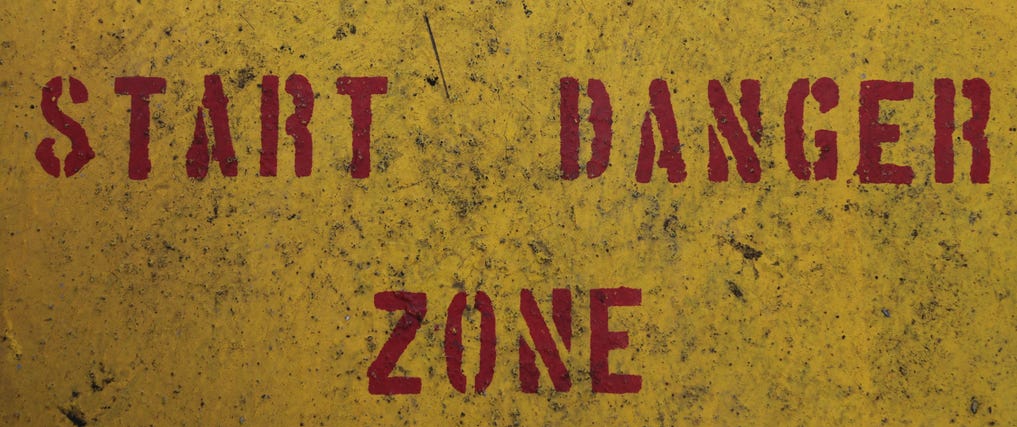Here is my installment covering the fundamentals. In this episode, I discuss freeze-type stress responses.
My additional notes are below the transcript.
Transcript
The freeze instinct comes in several variations.
The most obvious one, you can see in Parkinson's people because they suddenly cannot move. Like frozen in time for seconds or several minutes.



But other people in general also have experienced that they cannot move or have paralysis because of fear that they don't know what to do, as they have sensed something that triggers their instincts.
We have some sayings that we are frozen in fear, or similar, but being so indecisive that you cannot move, cannot make the right decision here and now, it is another sort of freeze.



It also connects with the body memories where you can get more and more stiff in one arm or one leg.
You can also see it in some - today we call them more mental diseases - where people are freezing to the extent that they have doubts if they are in their body or not in their body [dissociation]. So there are some “mental” diseases that are bordering on this freeze instinct.
In modern life, being indecisive, not being able to decide to go left or right or to take decisions A and B it's a sort of freeze. You put yourself in a pause, so you cannot take the next step and that's a small sign of freeze.
I have actually experienced it myself in an airport where there was a ticket machine, and I didn't know how to use it. Then an employee came and showed me how to use it.
I didn't understand what he was telling me. I got embarrassed and this embarrassment actually blocked me from doing what was needed.
The employee got more and more impatient. He was looking at me and thought “What's going on here”. I dropped things that I had in my arms because I was stuck in a small paralysis.
I think most people have either seen a person like this or have experienced it themselves. They just didn't know what to do in a certain situation and couldn't say the right things.
Maybe they were in a group. One of the most common things is that you are in a group setting and you need to tell who you are, and then you start thinking: “What should I tell?”, “which version of the truth should I say?”. Should I say it whole, should I keep it short, should I say this or that? Your brain starts running fast and the turn comes closer and closer, and you can end up you can hardly be able to say anything when it's your turn to say something. This type, I think most people have experienced.
Taking some deep breaths is always a good way to come down into your body again and become calm.
A big sigh is actually the body's own signal.
(Breath): I'm back in a peaceful place again…
When you're in the process, I don't think you have the thought of calming down yourself because it's part of the fight, flight freeze. Your body is trying to keep you safe by saying you should run, you should hide, OR you should get invisible via the freeze instinct.
My notes:
I help people with the freeze symptoms find the exact trigger for their freeze episodes. It is often a place or a thing. Like in my example, where you were embarrassed or where you once fell. Or an internal push you give yourself to move forward. If you have freezing as a stress symptom, an extra adrenaline push will cause your body to freeze instantly.
If you would like to help me debunk the myth of chronic disease, how it gets started, and how to get back to better health, please share. For centuries, millions of people have been subjected to a nocebo spell: "There's nothing you can do, you can only get worse". And that is the first push into a downward spiral of depression and inactivity.
There is so much that can be done to help these people understand the basic principles of symptoms and their biological roots in instinct,
The HOPE shortcut “Member Area” is now “HOPE Community”.
This is to reflect better that our intention for this space is to provide fellowship and companionship on your healing journey, as well as an online recovery retreat, where you can learn and onboard the knowledge and techniques for healing and recovery
We know, and have experienced, not only the loneliness that comes with a chronic illness, but also how it can be such a lonely path being one of the few who are hopeful and have faith that they can heal, especially when friends, family, and doctors don't believe that healing, recovery, symptom reduction, or being drug independent, is even possible.
Instead of being alone and isolated, our HOPE Community is intended to connect you with like-minded folks, and fellow travelers, including ourselves. Whether in the weekly group calls, asking questions and sharing experiences in the forum, listening to Community members healing stories in the library, or following Gary's recounting of his own journey, here you will find a sense belonging and togetherness, and the feeling that you are supported.
Here is where hope can grow into faith and action.








Share this post